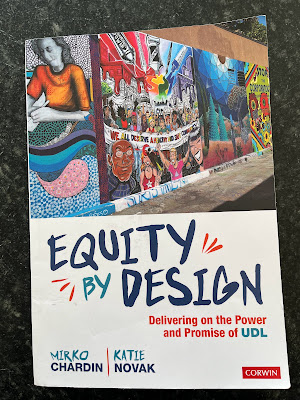Universal Design for Learning Planning Tools
In Equity by Design: Delivering on the Power and Promise of UDL, authors Chardin and Novak argue for adopting a Universal Design for Learning framework:
Many of the "tried and true" techniques and curricula perpetuate privilege and compliance rather than focusing on the power of learning, productive struggle, and empowerment...UDL calls explicitly for expert learning or teaching students how to learn, how to set goals, and how to share what they know to reach those goals in authentic, meaningful ways. Because students come to us with a unique mix of strengths and weaknesses, the UDL framework calls for educators to transfer power to students so they have options and choices for how to learn and how to share what they've learned. UDL, which is built on decades of research in neuroscience, is grounded on the foundation of three principles, all of which remind educators to provide students with options for personalizing their education:
- Multiple means of engagement
- Multiple means of representation
- Multiple means of action and expression
https://udlguidelines.cast.org/
You may find the following two tools helpful as you plan activities, lessons, and units with a focus on increasing entry points and removing barriers for all learners.




Comments
Post a Comment